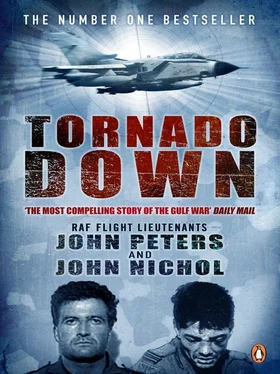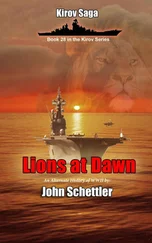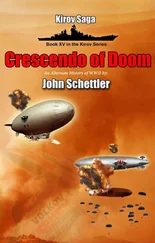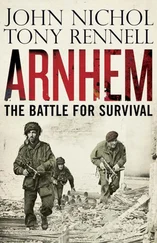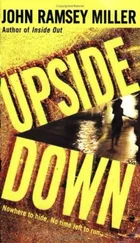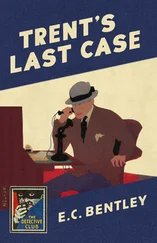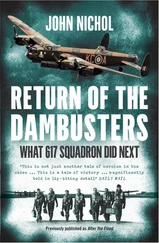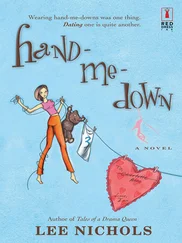All these power journalists were eager-beavering, with their power-drives, their shoulder-padded egos, their TV lights, trailing clouds of cables and high-technology, when in wandered a diminutive African reporter, wearing a shabby grey suit and a checked shirt. He was clutching a crumpled camera bag. Oblivious to the scrum, as his fellow cameramen wrestled to replace spent films, he stopped calmly in front of us. He took a very old, very battered Leica camera out of his bag, followed by an equally ancient light-meter. Twenty-eight of his allotted thirty seconds he spent fiddling with this meter, holding it up to our faces, stepping back, then forward again, adjusting the f-stop ring, focusing the lens. Finally, he stepped back, and pressed the shutter release. Nothing happened. He had forgotten to advance the fresh film! He wound on, carefully, once, twice, then re-focused. Click! He took the one shot, smiled at us gravely, bowed and retired. His serene dignity was utterly incongruous in that context, but he endeared himself to us because of it.
When the media’s thirst had been slaked, the Red Cross officials suddenly took off their jackets and offered them to us. Some of these jackets were expensive, rich leather. What on earth was going on? The idea, it turned out, was to disguise our very obvious, bright yellow prisoner-of-war suits, on the way out of the hotel. We were leaving Iraq.
‘We’re sorry,’ they said. ‘We are going to have to drive you into Jordan. There is no aircraft available. It’s a ten-hour trip. But don’t worry, we’ve got loads of stuff in the jeeps, food and everything. And these will keep you warm.’
Sorry! I could not care if I roller-skated out, as long as I got out, and soon. On the way back out of the hotel, our captors became our protectors again. The press were still hanging around, doing their job, bugging us. But the guards shouldered through with a will. After they had forced a passage for us back through the manic multitude, we scrambled onto the long-wheelbase jeeps, the new ships of the desert. Emblazoned with the bright red markings of the International Red Cross, they were our transport to Jordan. We were travelling in a three-vehicle convoy, the armed Iraqi escort taking the lead. We set off through the streets of Baghdad.
Baghdad. It was a ruined city, but it was ruined in a fantastically impressive way. A radio mast had been sited in the middle of a housing cluster. The radio mast itself had been blasted to a pile of twisted metal, its jagged ends clutching skywards, but the surrounding homes were quite untouched. We passed target after target that had been specifically taken out. It was extraordinary. Although in prison we had been on the end of many a bombload ourselves, here was firsthand evidence that the precision bombing had, in fact, been just that: precise.
We came to a small town on the other side of the capital. Some of the key buildings in the centre had been destroyed, along with a new bridge, its spans lying drunkenly in the wide river. The jeeps had to pick their way very cautiously over the old bridge, which was itself quite badly damaged. We lurched to a stop. Everyone in town seemed to be carrying a rifle, except for the street vendors, who were brandishing grilled meat on sticks instead, making their sales pitch. The meat smelled delicious, but it wasn’t worth staying for. The townspeople were staring at us, gathering silently until there was a big crowd. There was no love in those stares. Some people began fingering their weapons. We were glad of the Iraqi escort.
It was a relief to emerge into open desert. Straight as an arrow, the tarmac ribbon of the road shimmered and wavered in the heat haze. There were continual reminders of the war. Every twenty kilometres, the otherwise featureless landscape was punctuated by a radio transmitter, housed in a small building by the side of the road – or rather, an ex-radio transmitter. Every single one of these links in the Iraqi communications chain had been obliterated, blasted into oblivion. Not one had been left out, all the way from Baghdad to the border. They were gruesome milestones, blackened and deserted. As well as these ruins, large trucks and fuel tankers, bombed off the road, lay twisted and broken along the route, like scrap. We stopped occasionally; some of the others still had bowel problems, and needed to relieve themselves with monotonous regularity, squatting in the sand by the side of the road. During these intervals, we sipped heavenly iced tea, from thermos flasks provided by the Red Cross.
Never quiet and retiring anyway, I now found myself unable to stop talking. For the whole ten-hour trip, I talked and talked, to anyone who would listen, and even to anyone who would not. It was my reaction to solitary confinement, to the fact that there had been so few opportunities to talk in the past seven weeks. I had missed, among other things, the sheer pleasure of conversation, the joy of communicating with my fellow human beings. Goodness knows if anybody took any notice of my endless wittering, but it did me good. Underneath the chatter, I realised we were not yet free. Despite the red crosses on our vehicles, we were still inside Iraq. But the wide desert and the sunlight were intoxicating after the narrow horror of the cells. It was enough that there were people there who wished us well.
Happiness is the Iraqi desert in the rearview mirror.
John Nichol: Designer Suit, as I called him, the smooth-talking, important-looking Iraqi civilian, came into my cell. He stared intently at the side of my face, still swollen and discoloured from the kicking the guards had given me when they had caught Larry and me at the window.
‘Did somebody hit you?’ he asked, as if this were something unheard of in Iraq.
‘Yes,’ I replied, resentfully. This was a bit rich.
‘An Iraqi?’
Most of Iraq, I thought, has had a go, at one time or another.
‘Yes.’
‘Never. That is impossible. None of my people would hit you. We are Arabs. We do not hit unarmed men.’
Not half, you don’t, I thought, but the guy was sincere. He really believed that our captors had behaved with honour. It was almost a shame to disillusion him.
When he had gone, I heard the Lieutenant say to Larry next door, ‘You will be going home soon.’
I could hardly bring myself to believe it. Iraq is a society that is fantastically insulated from the rest of the world, because of the iron grip that the all-pervasive, Orwellian agents of Saddam Hussein, the torture-happy Ba’ath Party, have on information. But this time, it was the truth.
Twenty minutes later, a line of ten prisoners, including JP, filed past my door. I was pressed up against it, my face tight against the bars. I was appalled. They were leaving me behind! Then I heard other captured fliers banging on the walls, realised that this was just the first batch, and the fear turned to joy. It would be my turn next. But the minutes dragged on, and then the hours, and no one came. They were keeping us in overnight! So close to freedom, that hurt. It was personal.
To make things worse, the various air forces of the Coalition cut sonic booms across the sky above the prison during the night, the F-15s and F-16s rolling in victory across Baghdad. ‘Please, no,’ I thought. ‘Don’t provoke them. Don’t let it start again. I know I’m going to get out of here soon.’ But there was no Triple-A to greet the display, so I hung onto the idea that all would be well, that the next day would see my release.
And so it proved twenty-four hours later. They came in, and offered me the chance to clean up a bit. I had a quick sluice down in tepid water. This provided only partial relief from the engrained filth. I was infested with body-lice by this time, tiny crabs that burrowed deep into the groin, itching horribly, a form of company that was impervious to anything but specialised treatment. After the wash, the guards served up a half-decent breakfast, and said, ‘You will be going home in twenty minutes.’
Читать дальше
